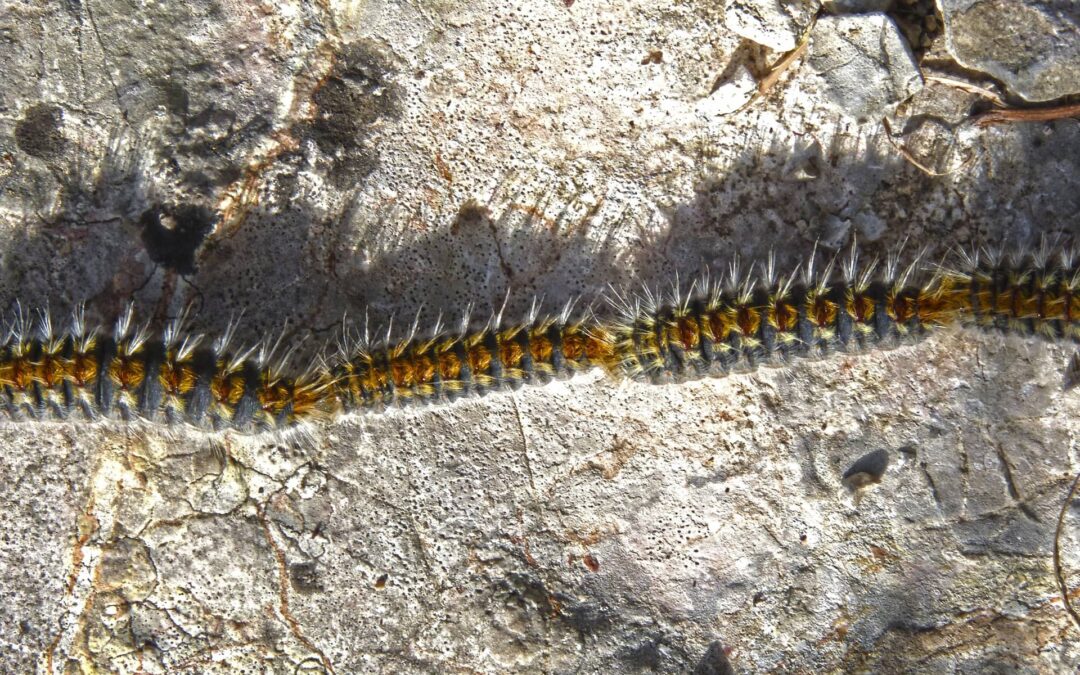They are called pine processionary caterpillars and it’s likely you’ve seen them at some point walking in a long line across the floor of a pine forest. This natural spectacle not only catches the eye of humans but also of dogs. The most curious can die in an attempt to see what these funny-looking creatures taste like.  The caterpillars are always there but it’s only at this time of the year that they cross the paths of humans and their pets. At the beginning of spring, the rising temperatures trigger the burying instinct. The caterpillars come down from their nests (the white balls you see in pine trees) and walk along the ground looking for a place to bury themselves and make a chrysalis they will then break out of in July as moths. They walk along in procession (hence their name) led by a female and would be easy prey for predators at this point if they weren’t poisonous.
The caterpillars are always there but it’s only at this time of the year that they cross the paths of humans and their pets. At the beginning of spring, the rising temperatures trigger the burying instinct. The caterpillars come down from their nests (the white balls you see in pine trees) and walk along the ground looking for a place to bury themselves and make a chrysalis they will then break out of in July as moths. They walk along in procession (hence their name) led by a female and would be easy prey for predators at this point if they weren’t poisonous.
That’s where the problems start for dogs (or anyone that touches them). The caterpillars are covered in poisonous hairs with a toxin that is devastating for dogs who put their noses near them. The Canillas veterinary clinic in Madrid has reported a rise in the number of cases this year. They treat a dog every day. First the dog starts to scratch its mouth, as if it wants to get something off its tongue with its claws whilst salivating profusely. At this point you need to get to a vet as soon as possible. “They can die”, explains vet Juan Luis Segado.
The caterpillar causes various injuries to dogs. The symptoms are similar to those of an allergic reaction. The tongue, oesophagus and stomach swell up. Eventually, the dog can’t breathe and dies. In most cases this doesn’t happen because they get to a vet in time, but the animal’s tongue where it has touched a caterpillar suffers necrosis. Some lose almost all their tongue.
Vets recommend getting to a clinic as soon as you see the symptoms, although you can wash their mouth out first with abundant water to dilute the effect of the poisonous hairs. If you’re walking in the countryside far from any vet clinic, specialists can prescribe a medicine in pill form or in an injection that some owners carry with them in case of an accident, especially if they have the type of dog that eats everything they find.
